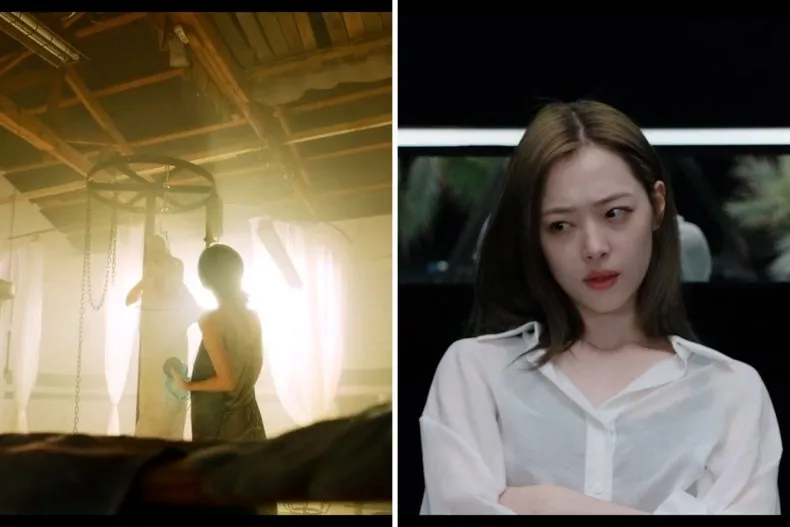Persona: Sulli -- Netflix Documentary
- Drama Banter

- Mar 6, 2024
- 3 min read
Persona: Sulli is a compelling Netflix documentary about Sulli (Choi Jin Ri), who began her career as a child actor in 2005, before debuting as part of the K-pop girl group f(x). She left the group in 2015 and continued her work as an actress, and released her first solo music in June 2019, just months before her death in October 2019. The documentary sheds new light on the life of the Korean artist and the challenges she faced.
The documentary is comprised of two parts: the first is the opening act, a drama titled 4: Clean Island, and the second, her main documentary titled Dear Jinri. The project is the final work of the late artist Sulli. In the second part of the anthology, Sulli shares her journey as an idol, while also contemplating her life as a human being. Viewers get an intimate look into the dual psyche of the artist and the human.
I can't say I knew Sulli or was much of a fan, but her death deeply saddened me. She was everything the Korean entertainment industry needed for a positive, if not better, change. Sulli was reportedly a victim of cyberbullying and previously spoke about the mental health problems she suffered after malicious comments and rumors circulated about her online. Her death shocked the Korean entertainment industry and was followed by the death of another K-pop star, 28-year-old Goo Hara, just over a month later. And it's the reason why this documentary feels like a premonition or a setup for the idol's death. Throughout it, the symbol or reference to death is very prevalent. From the number four to the color red, all reference death or symbolize it.
In a way, or maybe in my mind, I want to believe Sulli became the change she wanted to see, but sadly gave up on that change to the people who made her famous, and who were also the ones who pulled her down to the lowest point that she felt the only escape was to leave it all to them. Given the opportunity, I truly believe she would have been the beginning of the change needed in the industry, and this documentary proves it. At times, it is hard to watch. For us fans, everything looks so glamorous watching from our TV screens. I can't fathom the hardship, discrimination, control, mental, physical, and even sexual abuse many of the stars we adore suffer to bring us the phantom joy we live in for a few hours or weeks.
More than the short film, the interview was hard to watch, at least for me; hearing and, in some instances, feeling her pain, imagining the hardship, and ultimately, picturing the decline in mental health is truly heartbreaking. I wish she knew she had other options, but it is easy for me to say this now. I wish the people around her helped her realize there were other choices, including her management company. They must have witnessed her pain firsthand. What resonated with me was when Sulli said what stayed with her from the first time she started in the entertainment business was being told: "You are a product. You need to exist as the finest, top-quality product." She said: "Even when they didn't say I was a product, everyone treated me as one. I had to be what they wanted me to be. I had to fear losing my product value."
I genuinely believe the entertainment industry itself bears a lot of responsibility for her suicide and the many others like her. They treat celebrities like commodities from whom a few powerful agencies can squeeze as much income in as short a time as possible. They strip them of any semblance of everyday life, letting the fans go too far in their obsessions and sometimes giving in to their demands of not allowing idols to be in relationships or even marry. The crazy fans who are obsessed over Sulli's life choices are also to blame for her death and the death of many gone too soon in this industry. I realize the many celebrity suicide deaths in the past decade or so have brought the issue of suicide and mental health to the forefront, as Korea has the highest rates among developed countries among civilians, and is attributed to academic and work pressure, the stigma around mental health, among others. I can't even begin to know the solution, but I would guess an open and honest dialogue like this one is a great start. Rest in peace, Sulli and the many others who left this earth too soon. I highly recommend giving this a try. Sulli earned at least that. Watch it here.





















Korean dramas are very popular with teenagers today because they show different romantic scenes, and almost all Korean dramas deal with the topic of love relationships, and for the best Korean dramas, don't miss out. For more information, visit the website. https://sites.google.com/view/berita-kpop-only-disini/